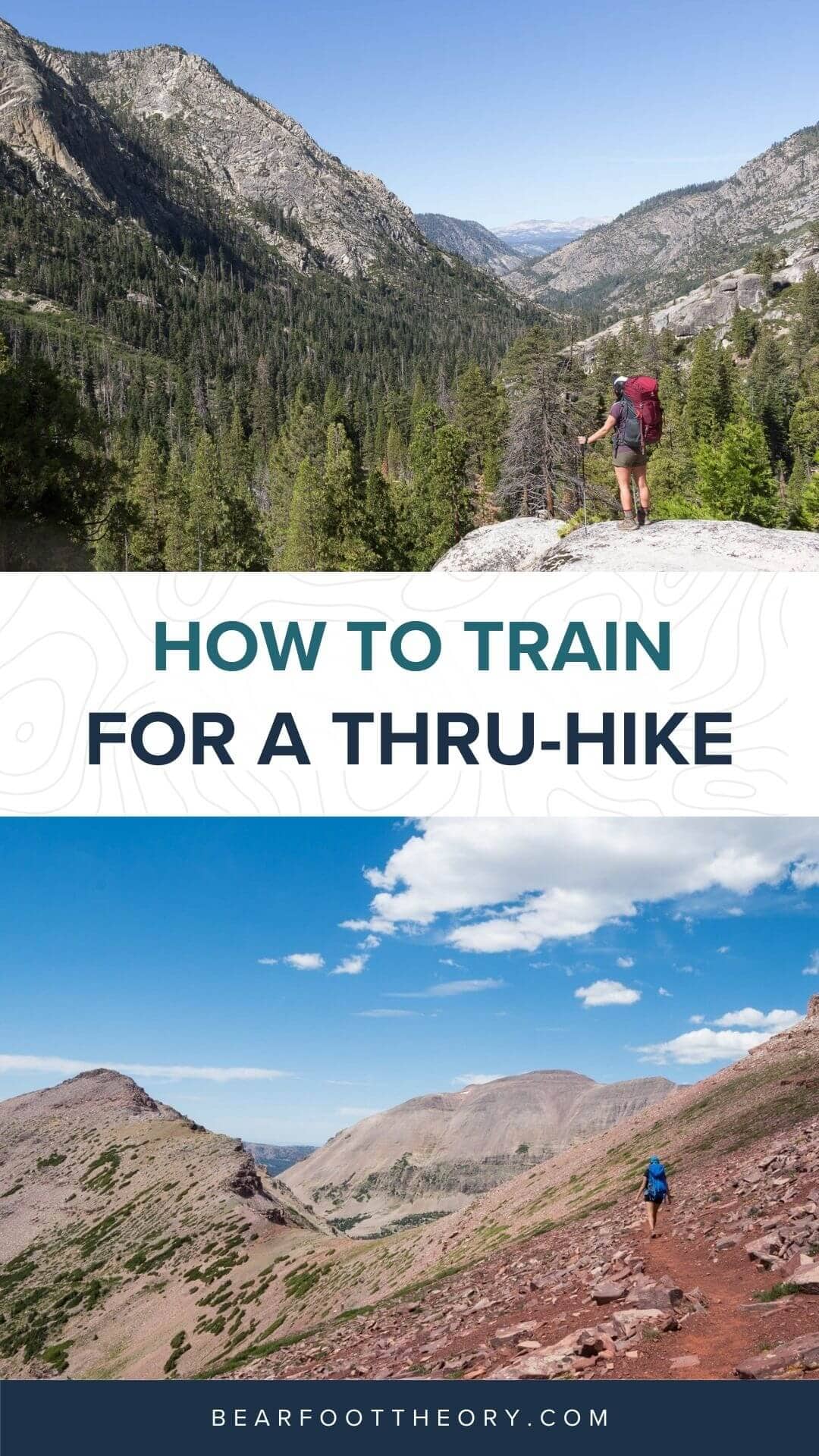How to Mentally and Physically Train for a Thru-Hike
Training for a thru-hike requires mental and physical preparation. Learn how to get ready with these tips from a PCT and JMT thru-hiker.
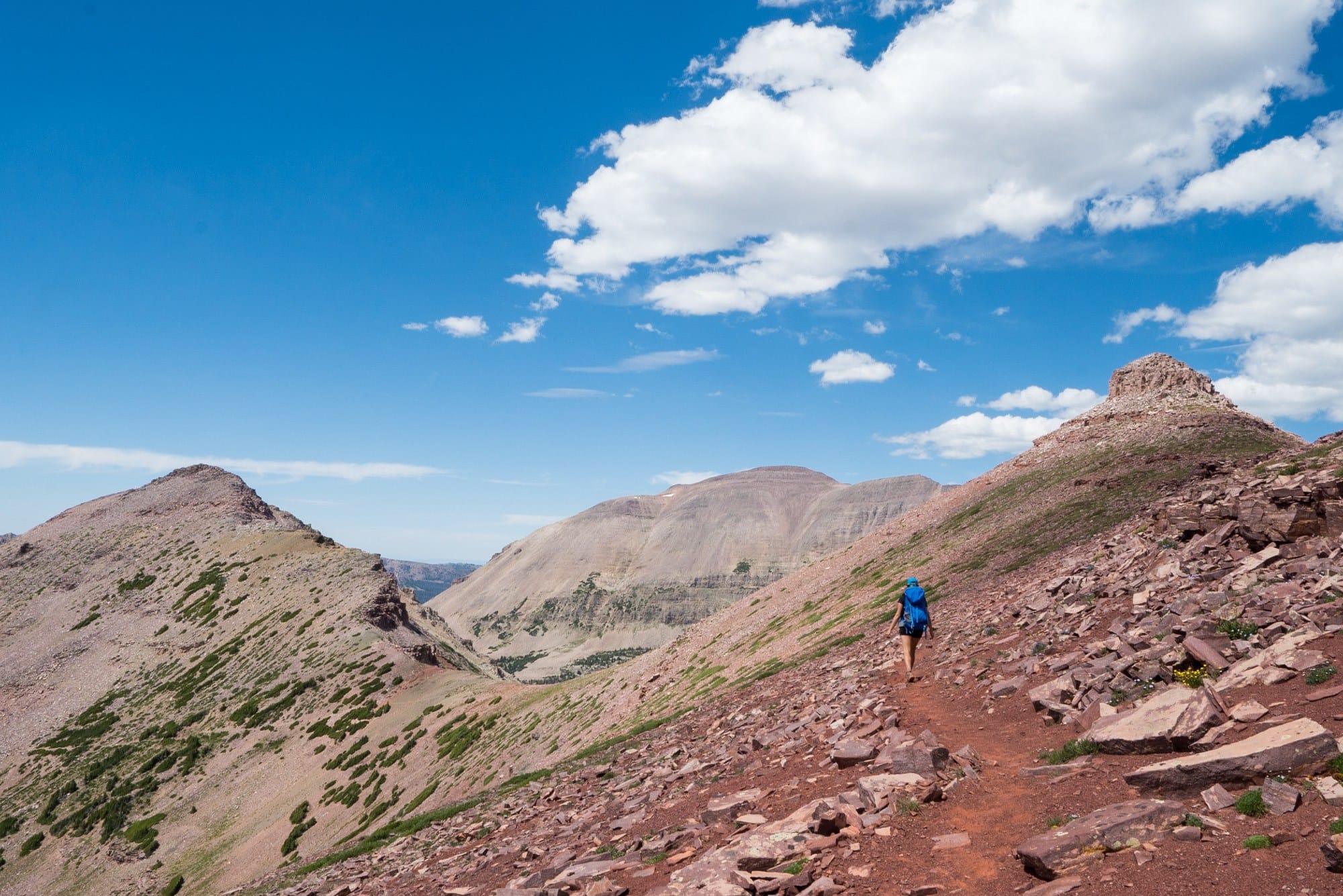
A successful thru-hike requires training. Hiking day in and day out for an extended period of time poses mental and physical challenges that you need to be prepared for. Whether you’ll be hiking weeks or months, it’s a guarantee that not every day is going to be peachy. Some days you’ll ache. Some days the scenery will be monotonous. Some days you may even get scared.
There is no question that thru-hiking takes a lot of courage and dedication, and you can absolutely overcome any hardships and have an incredible time. I have thru-hiked the John Muir Trail, and the key is being prepared – both in body and mind. Before your hike, there are a number of things you can do to train and prepare for your long-distance hike, even if you start training indoors first.
Looking to hit a long distance trail? Below I share the top tips on how to train for thru-hike.
This post may contain affiliate links.
Physically Training for Thru-Hiking
Really, a little bit of everything will help prepare your body for long days of hiking and carrying a pack. Here are some of the best ways to physically train for thru hiking with plenty of options for everyone.
Yoga
Hiking-specific yoga poses have so many benefits that will help in training for long distance hiking, especially in terms of building strength and flexibility which is key to not getting injured.
First and foremost, yoga helps strengthen the core which is important for hiking, backpacking, and any standing activity really. Yoga also helps improve balance which will come in handy on those stream crossings. In addition, yoga can teach you how to focus on and control your breathing so you can ensure you’re breathing right and be prepared for significant changes in elevation on long-distance hikes. Yoga will also teach you some great stretches to do after workouts and while on your thru hike. Trust me, you’ll want to stretch out those sore shoulders and legs after hiking with a pack on all day and to loosen any stiffness in the morning before setting out.
Beyond the physical training yoga provides, yoga is also a great way to mentally train for a thru-hike, since the mind/body connection in yoga is strong. Yoga teaches us to slow down and connect with ourselves which is so important for mental health. It can be tough at first – especially if you aren’t used to slowing down and holding poses, or have limited flexibility. Stick with it – yoga is a practice, and the benefits both on and off the mat outweigh the initial discomfort.
Ok, but what if you really aren’t into yoga? There are other ways to build a strong core and increase flexibility. Try paddle boarding (you can also do yoga on the paddleboard!), barre, pilates, stretching, running (be sure to stand tall and keep that core engaged) or set up a slackline!
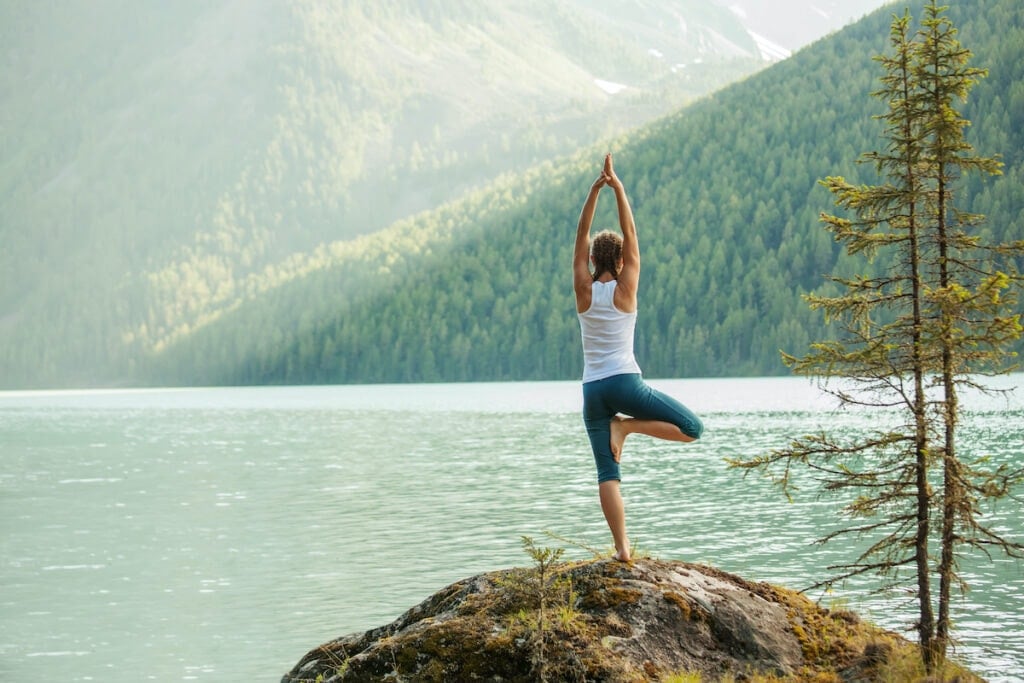
Cardio
Be comfortable being active! Remember you are going to be walking every single day for weeks or months depending on the trail you choose. Build up your cardiovascular system by doing some form of cardio 3-4 times a week to prepare for your thru-hike.
If you like running, sign up for a race. A 10k or half-marathon will give you a more immediate goal to train for. Cycling or mountain biking is another great option to help build cardio. During the winter, you can also stay active by snowshoeing uphill or ski touring if you have proper avalanche training. And of course, there’s always hiking! Learn how to get fit for hiking with these tips.
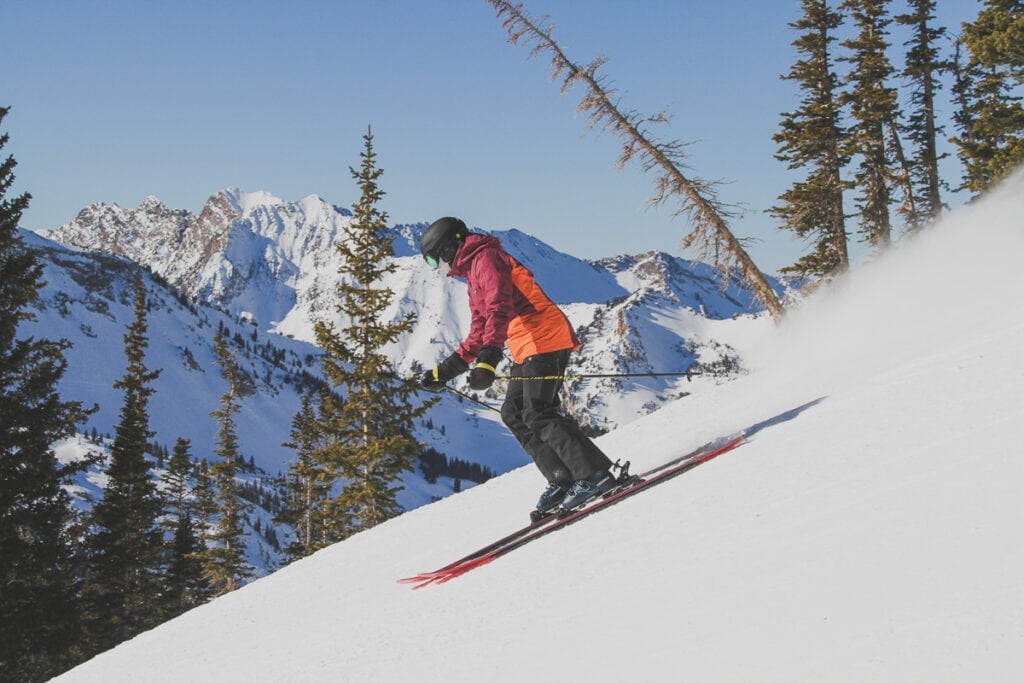
Strength Training
The muscles that are essential to carrying a pack are upper arm, shoulder, pec, and back muscles. In addition to that, you’ll be using your core for stability and your legs to carry you up and over those passes. Focus on these muscle groups when choosing exercises. Keep in mind you are going to be carrying a lot more weight than your body is used to, and this will also affect your joints (this is also why you’ll likely want a set of trekking poles).
It’s important to ease your body into carrying all the weight it will carry on the trail. Start small by using wrist/ankle weights during training walks or fill your pack with 5-10 pounds for day hikes. If you already have weak joints to begin with, swimming is another great option to build strength. There are even weights you can use in the pool to gradually add strength training into your routine! Climbing is also great for building upper body and leg strength, so hit up your gym or local crag. What if you don’t have time to do this every day? Find some quick online workouts that target different muscle groups. Squats, lunges, deadlifts, pushups, and planks are all great workouts you can do anywhere without any equipment. Just 15 minutes a day can help you build strength and prevent injuries.
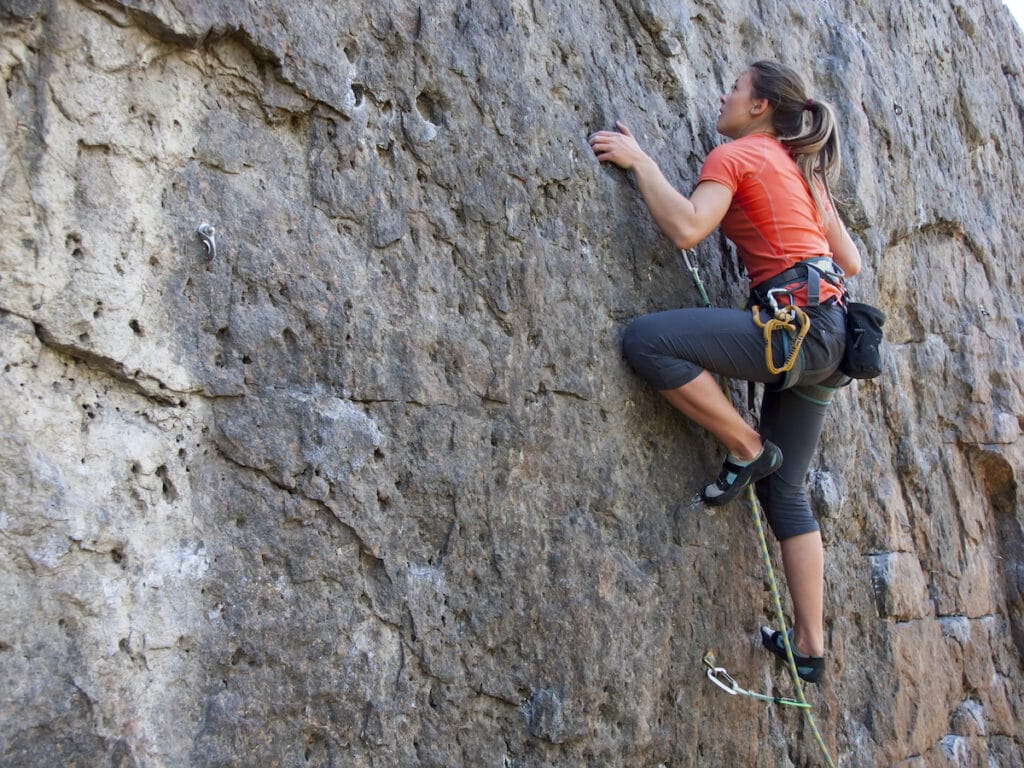
Preparing for Elevation
If you can’t train in higher altitudes that is totally okay; building your cardio will help with building your lung capacity for hiking. Kim walked a lot of stairs to prepare her lungs and build strength in her knees prior to her PCT thru hike. Check to see if your local high school or university will allow you to walk the football stadium stairs. The key is to know how high you will be hiking and compare that to where you currently live. If you live at sea level and will be hiking at elevations of 10,000+ feet, it will be even more important for you to focus on cardio and breathing exercises to help prevent altitude sickness.
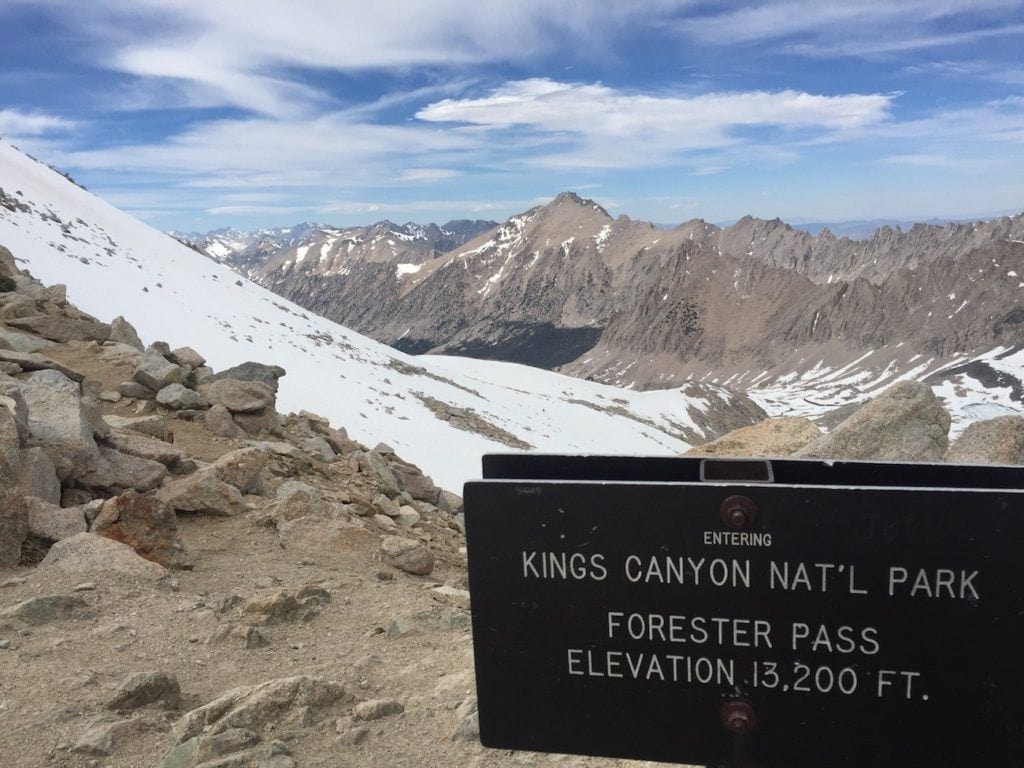
Save this post!
Enter your email & I'll send this post to your inbox! You'll also receive my weekly newsletter full of helpful advice for planning your adventures.
Mentally Training for Thru-Hiking
Mentally preparing for thru hiking is just as important and preparing your body for the physical challenge. There will defintely be tough days out on the trail, and maybe even days when you question yourself, and that’s why these tips are so important.
Know Your “Why”
The Pacific Crest Trail Association estimates that between 50-60% of people who attempt to thru-hike the PCT fail. Many people focusing on getting the right backpacking gear and building physical endurance, but they forget the mental aspect of thru-hiking. A year before Kim hiked the PCT, she attended Pacific Crest Trail Days (generally held in late August in Cascade Locks, OR) to get as much exposure to thru-hikers as possible. One thru-hiker told her, “You have to know WHY you are doing the trail and you have to be able to remind yourself everyday WHY.” After thru-hiking, she says she can’t agree more with this. Your “why” might change on the trail and that is perfectly okay, but you need to discover your “why” to prepare yourself mentally for the grind. Kim recommends sharing what you are going to do with as many friends and family as possible, and tell them your “why” too! That helps build your support network.
Walk the walk, and before you take your first step, know why you’re doing this and believe you can do it.
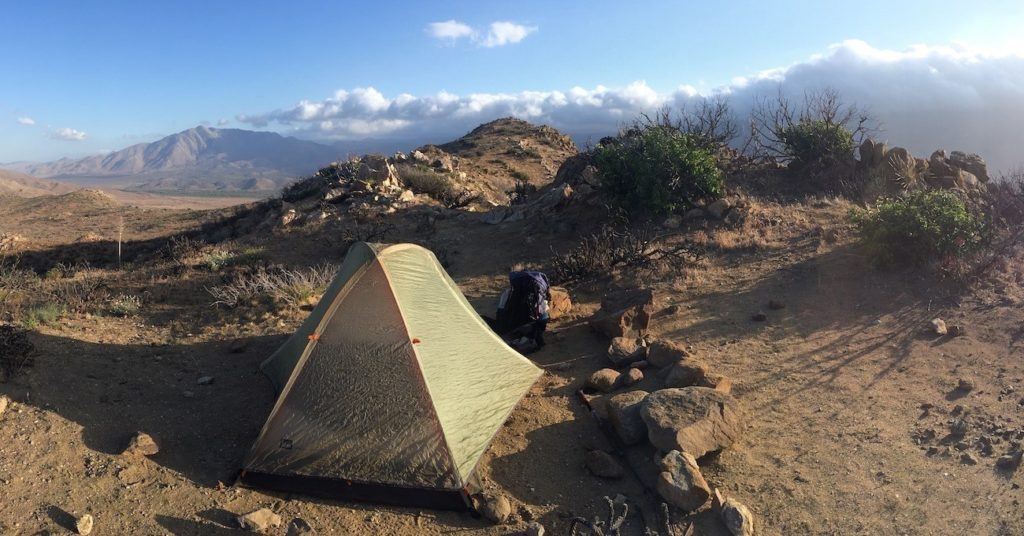
Get Comfortable Being Alone
If you are a solo thru-hiker, practice being truly alone. Without your cell phone, without the television, without your computer, and without friends– 100% alone. Before your hike, go solo hiking and solo camping, even if that means car camping in a major campground where you’re not really alone. If you have fears to face, this will be a major stepping stone. Once you do that, go on a short overnight solo backpacking trip. Hike a few miles in, set up camp, and sleep alone in the woods. These baby steps will help you build up confidence as part of your thru-hike preparation.
An important note: Even if you are starting with a partner, you need to be prepared to spend time alone. What if your partner bails out halfway through? What if you need some time to yourself? Working on your solo hiking skills before your thru-hike will help you once you’re out there.
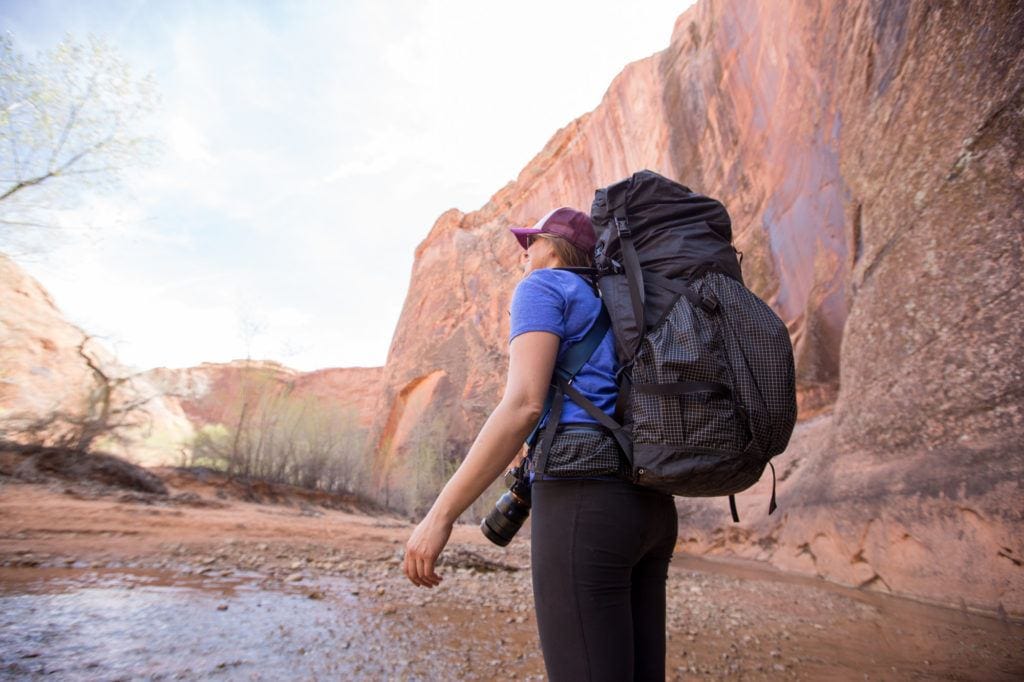
Become Self Reliant With Your Gear
Once you are out there, you will need to be 100% self-reliant. If some of your gear breaks, you’ll need to figure out how to fix it. You should test all of your gear and practice with it, so you feel comfortable using it before you go on your thru-hike. Make sure you know how to repair, maintain, clean and store your gear while on the trail as well. Being self-reliant also means you should know how to read a topo map.
If you need support with finding the right gear for your thru-hike check out these gear lists:
- A Complete John Muir Trail Gear List
- 3 Day Backpacking Checklist
- How to Pack a Backpacking Pack for a Multi-Day Hike
And I have gear guides to help you with all the major purchases:
- Best Backpacking Backpacks
- Best Backpacking Sleeping Bags
- Best Backpacking Sleeping Pads
- Best Backpacking Water Filters
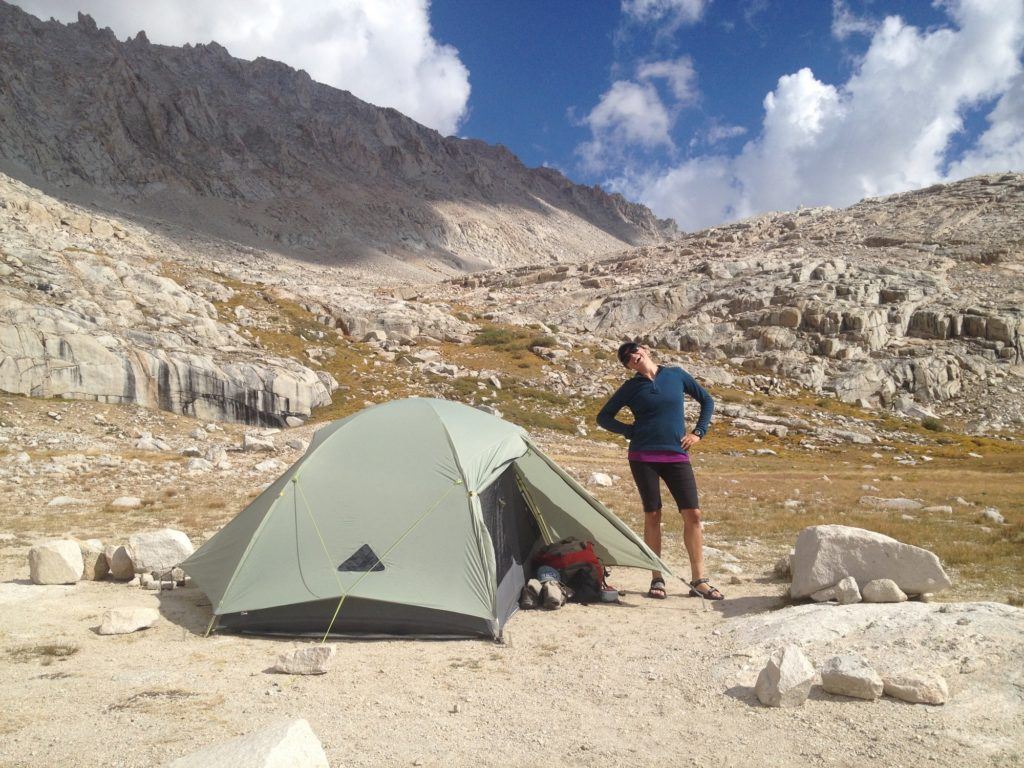
Situational Training for Your Thru-Hike
Walk yourself through all the situations that could occur in the wilderness so you can feel more comfortable and confident with your ability to take care of yourself. For example, visualize how you will respond to wildlife encounters on the trail. If you see a snake will you scream and jump in fear? Or will you stop and slowly back up to give it space to move away? Think about the different situations you might find yourself in, read and educate yourself on the topics you’re concerned about, and have a rational, well thought out plan for what you might encounter.
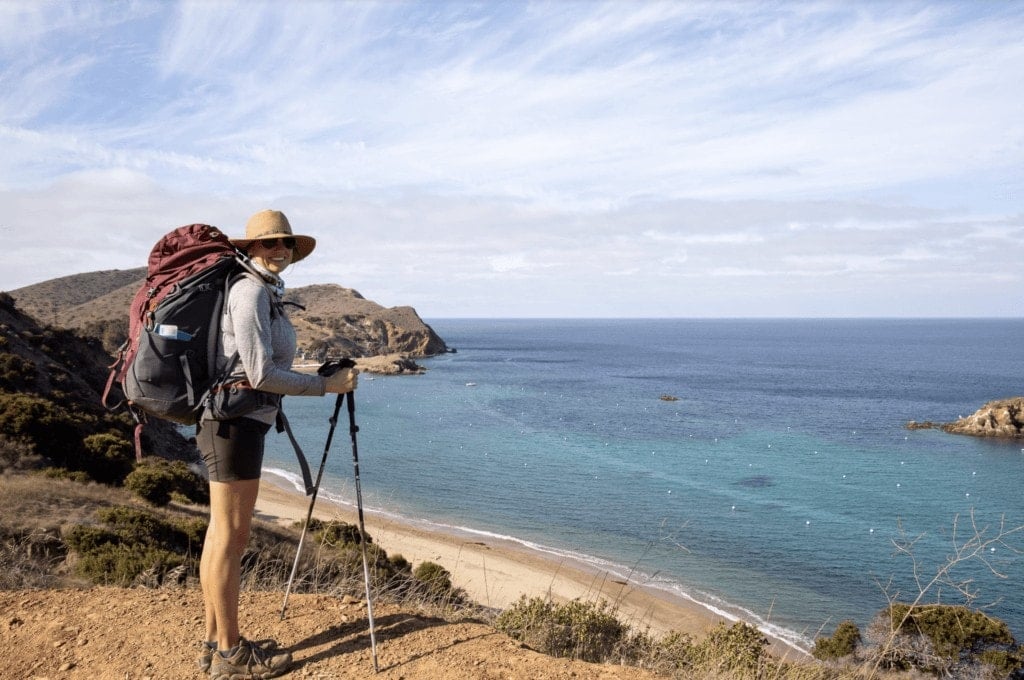
What thru-hikes are on your bucket list? Thru-hikers, what are your best thru hiking training tips? Let us know in the comments below!

